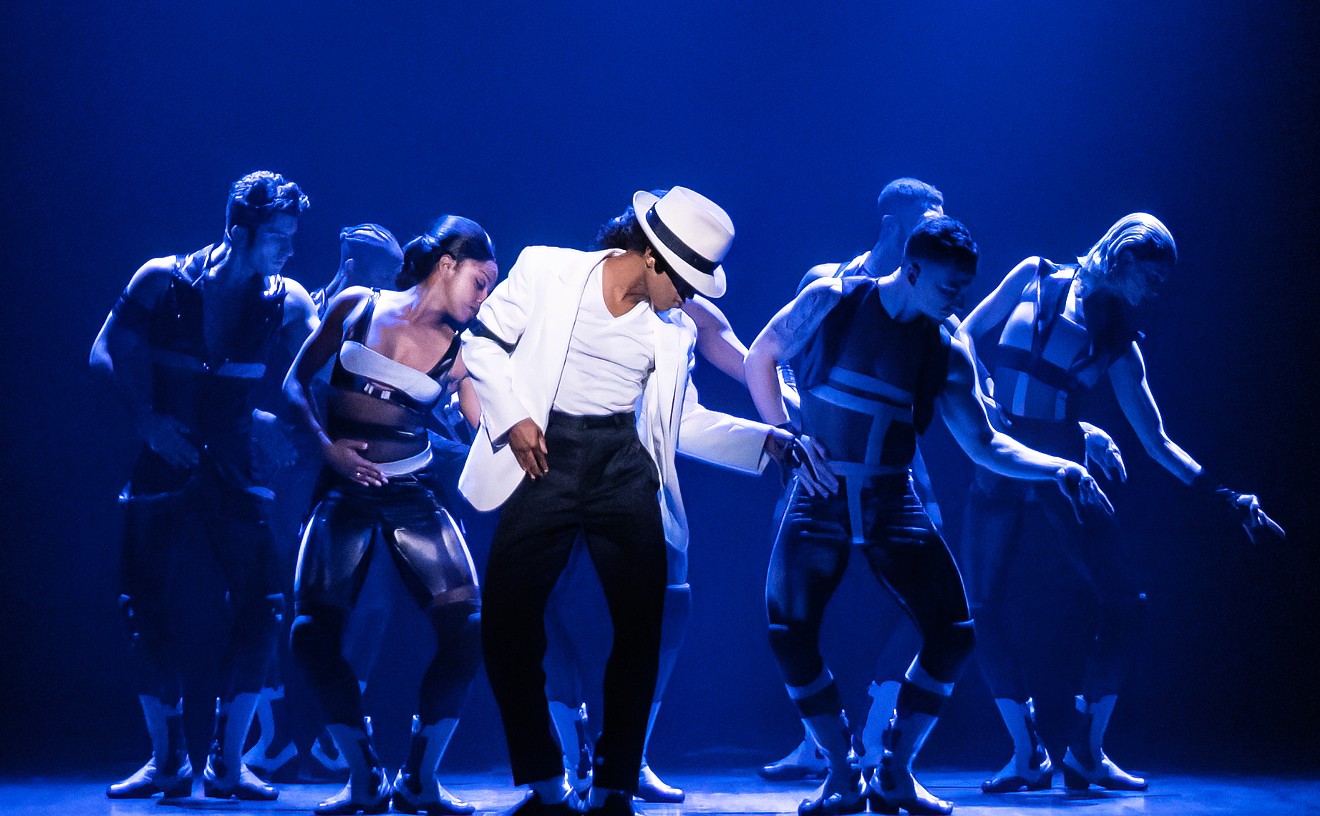Martin McDonagh's The Beauty Queen of Leenane is a brilliant work, its flaws so intertwined with its crazed strengths that you can hardly separate one from the other. McDonagh grew up in London, the son of Irish parents, and shot to fame in the 1990s. He invented an Ireland — and an Irish way of speaking — that's both an amalgam of the two cultures and entirely his own. His plays are a mix of grand guignol, shlock horror, wildly unexpected humor and profound though twisted emotion; he has a way of making poetry out of obscenity and vituperation that mirrors (and I'd say surpasses) David Mamet's. He evokes the misty, ghost-haunted world we remember from the work of such writers as Conor McPherson (The Weir, Shining City, The Seafarer, all of which have been produced in metro Denver) and, further back in time, Millington Synge — and he smashes that world to pieces. Those other works also captured the desperation and existential loneliness of life in rural Ireland, and we see that feelingly limned in The Beauty Queen of Leenane.
Leenane is a tiny village in Connemara, County Galway, where Mag, a meddling, wheedling, whining, vindictive old woman lives with her forty-year-old daughter, Maureen. Their interchanges are insanely funny, filled with the weary rhythms of over-familiarity and apparently trivial details about porridge and biscuits — but there's none of the grumbling, humorous bickering of most contemporary drama, and you're kidding yourself if you suspect that any trace of affection underlies them. These women are as feral as trapped animals; they genuinely hate each other. And yet you can't help savoring Mag's manipulative wiles and laughing aloud at Maureen's heartfelt desire to see her mother dead: The term "elder abuse" doesn't begin to plumb these depths of shame and horror.
There are the brothers: psychotic, violently irrational Ray Dooley and his inexplicably sweet-tempered sibling, Pato, who just might provide a flicker of hope for Maureen. As he talks with her, you can't help remembering the gentleman caller's visit with Laura — also afflicted with a monstrous mother — in Tennessee Williams's The Glass Menagerie. But McDonough has darker things up his sleeve than Williams allowed for.
For the most part, the plotting is deft: Even the smallest early reference — a missing tennis ball, for instance — often turns out to have significance later. But there are flaws, too, developments that don't seem credible even in the grotesque and surreal world of this play. Would Pato entrust his entire future to a letter carried by his volatile brother? Is Maureen really delusional enough to imagine the pivotal scene she describes in such clear detail? A shockingly violent event in the second act is convincing, but the persistent tone of menace that lingers afterward feels a bit B-movie-ish — though McDonagh does maintain a teasing, you-think-you-know-what's-going-to-happen-but-you-don't throughout that keeps you absorbed.
Michael Stricker, who directs The Beauty Queen of Leenane, was for over a decade the executive director of Paragon Theatre, one of Denver's best and most interesting companies. Paragon closed its doors two years ago. After vanishing from the scene for a while, Stricker returned last year to direct The Seafarer, which won a Best of Denver 2013 award for Ashton Entertainment. For this Edge Theatre Company production, he has mounted one of the most riveting shows of the entire year. Every detail of set, sound and costumes is perfect — but it's the acting that matters most, and the acting is revelatory. Emma Messenger's Mag, with her cunning, sidelong glances, transparent manipulations and occasional flashes of black hatred, provides the heavy-spirited, unsavory grounding for the action. She's more than matched by Emily Paton Davies, by turns trembling and vulnerable and purely murderous as Maureen. Both women give themselves over to their roles body and soul, and they deserve tremendous credit for it: The minds of Mag and Maureen, treacherous as sucking bogs, can't be pleasant to inhabit. Michael Bouchard gives a highly convincing performance as unhinged, swaggering Ray, and Mark Collins's Pato brings a hint of transcendence and grace into this frightening world—and has about as much chance of thriving here as a parakeet in nesting-hawk territory.











